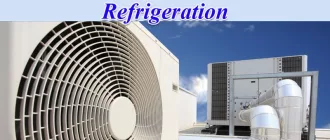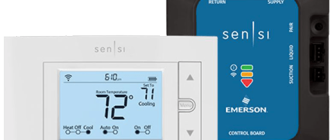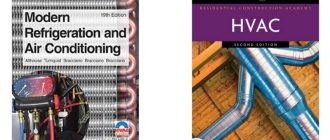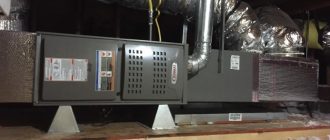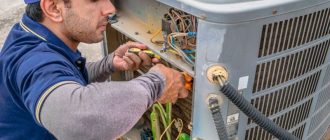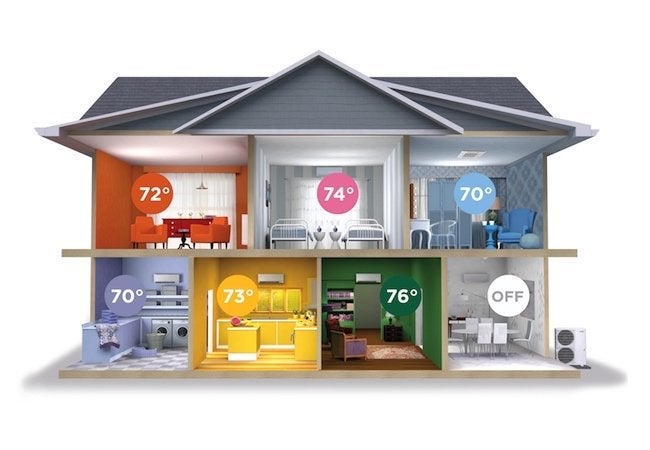
Achieving Ultimate Indoor Comfort: Top 3 HVAC Considerations
When it comes to achieving ultimate indoor comfort, there are 3 key HVAC considerations that cannot be overlooked. Whether you’re looking to keep your home warm during the winter or cool during those sweltering summer months, it’s important to choose the right heating, ventilation, and air conditioning system to meet your needs.
First and foremost, the top consideration is the size and capacity of the HVAC system. A system that is too small will struggle to adequately heat or cool your home, while a system that is too large will result in wasted energy and increased utility bills. It’s essential to have a professional assess your home’s size, layout, and insulation level to determine the proper system size for optimal comfort.
Another important consideration is the energy efficiency of the HVAC system. An energy-efficient system not only reduces your carbon footprint but also saves you money on utility bills. Look for systems with high Seasonal Energy Efficiency Ratio (SEER) ratings for cooling and Annual Fuel Utilization Efficiency (AFUE) ratings for heating. These ratings indicate the system’s energy efficiency and can help you make an informed decision.
Lastly, don’t overlook the importance of proper maintenance and regular servicing. Even the most advanced HVAC system requires regular upkeep to ensure optimal performance and longevity. Regularly changing filters, cleaning ducts, and scheduling professional tune-ups will help your system operate efficiently, improve indoor air quality, and prevent costly breakdowns.
In conclusion, achieving ultimate indoor comfort requires careful consideration of these top 3 HVAC factors: system size and capacity, energy efficiency, and regular maintenance. By addressing these considerations, you can transform your home into a cozy haven all year round.
Importance of Indoor Comfort
When it comes to achieving ultimate indoor comfort, there are several considerations that cannot be overlooked. HVAC (Heating, Ventilation, and Air Conditioning) plays a crucial role in optimizing the indoor environment.
First and foremost, indoor comfort is a top priority for any home or office. It goes beyond just the temperature – it encompasses the overall well-being and satisfaction of the occupants. Whether it’s a sweltering summer day or a freezing winter night, having a reliable HVAC system ensures that you can maintain a comfortable temperature throughout the year.
Another consideration is the indoor air quality. HVAC systems not only regulate the temperature but also filter and circulate the air, removing pollutants and allergens. This is especially important for individuals with respiratory conditions or allergies. By maintaining clean and fresh air indoors, HVAC systems contribute to a healthier and more pleasant environment.
Additionally, achieving optimal energy efficiency in HVAC systems is vital. With rising energy costs and concerns about environmental impact, homeowners and businesses are actively seeking ways to reduce their energy consumption. Investing in an energy-efficient HVAC system not only saves money in the long run but also minimizes the carbon footprint.
In conclusion, the importance of indoor comfort cannot be overstated. By considering these top 3 HVAC considerations – temperature control, indoor air quality, and energy efficiency – you can ensure that your indoor environment is optimized for ultimate comfort. Whether it’s your home or office, prioritizing indoor comfort creates a space where everyone can thrive.
Role of HVAC Systems
When it comes to achieving ultimate indoor comfort, HVAC systems play a vital role. These systems, which stand for Heating, Ventilation, and Air Conditioning, are designed to regulate and maintain the desired temperature, humidity, and air quality in any indoor space.
There are several important considerations to keep in mind when selecting an HVAC system. The top three considerations are:
| 1. Efficiency | Choosing an HVAC system with high energy efficiency ratings is essential for reducing energy consumption and ultimately saving money on utility bills. Look for systems with a high Seasonal Energy Efficiency Ratio (SEER) and Energy Star certification. |
| 2. Size | Selecting the right-sized HVAC system is crucial for ensuring optimal performance and comfort. A system that is too small will struggle to adequately heat or cool the space, while an oversized system can lead to excessive energy usage and uneven temperature distribution. |
| 3. Maintenance | Regular maintenance is key to keeping an HVAC system running smoothly and efficiently. This includes regular filter changes, cleaning of air ducts, and scheduling professional inspections. Proper maintenance will not only extend the lifespan of the system but also help maintain a healthy indoor environment. |
By considering these top HVAC considerations, you can achieve the ultimate indoor comfort you desire. A properly functioning HVAC system will provide you with the right temperature, humidity levels, and air quality, making your indoor space a haven of comfort.
Proper Sizing for Efficiency
When it comes to achieving ultimate indoor comfort, proper sizing is one of the top HVAC considerations. The size of your HVAC system plays a crucial role in its efficiency and overall performance.
First and foremost, an HVAC system that is too small for your indoor space will struggle to adequately cool or heat your home. It will constantly run, trying to compensate for the high demand, which can lead to increased energy consumption and wear and tear on the system components.
On the other hand, an HVAC system that is too large for your space can deliver a quick burst of cool or warm air but will quickly cycle off. This short cycling not only leads to uneven temperatures throughout your home but also increases energy consumption and puts unnecessary stress on the system, reducing its lifespan.
To achieve optimal efficiency, it is important to have your HVAC system properly sized. A professional HVAC technician will take into consideration factors such as the size of your home, the number of rooms, insulation levels, and your specific comfort requirements.
By ensuring the correct sizing, you can achieve better energy efficiency, lower utility bills, improved indoor air quality, and a longer lifespan for your HVAC system. Don’t overlook this important consideration when striving for ultimate indoor comfort.
Remember: Achieving ultimate indoor comfort requires paying attention to all three top HVAC considerations, including proper sizing for efficiency. Consult with a professional HVAC technician to ensure your system is the right size for your home.
Understanding BTU Requirements
When it comes to achieving ultimate indoor comfort, there are several HVAC considerations that you need to keep in mind. One of the top 3 considerations is understanding the BTU requirements of your space.
BTU stands for British Thermal Unit, which is a unit of measurement used to determine the amount of heat energy needed to raise or lower the temperature of a space. By understanding the BTU requirements of your space, you can ensure that your HVAC system is properly sized and can effectively cool or heat your area.
To determine the BTU requirements of your space, you need to consider several factors. These include the size of your space, the amount of insulation, the number of windows, and the desired temperature range. It’s important to note that different rooms may have different BTU requirements depending on their size and usage.
| Bedroom | 150 | Good | 2 | 65°F – 75°F | 6,000 – 9,000 |
| Living Room | 300 | Poor | 4 | 68°F – 78°F | 12,000 – 18,000 |
| Kitchen | 200 | Good | 3 | 70°F – 80°F | 8,000 – 12,000 |
As you can see from the table above, each room has different BTU requirements based on its specific characteristics. By understanding these requirements, you can choose an HVAC system that will effectively and efficiently cool or heat your space, ensuring ultimate indoor comfort.
Considering Square Footage
When it comes to achieving ultimate indoor comfort, one of the top HVAC considerations is the square footage of your space. The size of your space plays a crucial role in determining the type and size of HVAC system you need.
Achieving comfort in a small room requires a different approach compared to a larger area. If your space is smaller, such as a bedroom or office, you may be able to get by with a smaller HVAC system. However, in larger areas like living rooms or open floor plans, you will need a more powerful system to adequately cool or heat the space.
It’s essential to consult with an HVAC professional who can assess your square footage and recommend the appropriate system for your needs. They will take into account factors such as insulation, layout, and windows to ensure optimal comfort.
Remember that an improperly sized HVAC system can lead to inefficiency, increased energy costs, and inadequate temperature control. By considering your square footage, you can make informed decisions and achieve the ultimate indoor comfort you desire.
Energy Efficiency Ratings
When it comes to achieving ultimate indoor comfort, energy efficiency ratings are a top consideration for HVAC systems. These ratings determine how efficiently the system uses energy to heat or cool your space, resulting in cost savings and reduced environmental impact. Here are the top 3 considerations when it comes to energy efficiency ratings:
- SEER Rating: SEER stands for Seasonal Energy Efficiency Ratio. This rating measures the cooling efficiency of an HVAC system over a typical cooling season. Higher SEER ratings indicate greater energy efficiency.
- EER Rating: EER, or Energy Efficiency Ratio, is similar to SEER but focuses on a specific temperature and humidity level. EER ratings are important for climates with consistently high temperatures, as they provide an accurate measurement of efficiency under these conditions.
- HSPF Rating: HSPF stands for Heating Seasonal Performance Factor. This rating measures the heating efficiency of a heat pump system over a typical heating season. Higher HSPF ratings indicate greater energy efficiency.
Considering these energy efficiency ratings when choosing an HVAC system ensures that you not only achieve ultimate indoor comfort but also reduce energy consumption and environmental impact. Make sure to check the ratings of any HVAC system you are considering before making a final decision.
SEER and EER Explained
When it comes to achieving ultimate indoor comfort, there are several top considerations to keep in mind for your HVAC system. One of the most important factors to consider is the SEER and EER ratings.
SEER stands for Seasonal Energy Efficiency Ratio and measures the cooling efficiency of an air conditioning unit over a typical cooling season. The higher the SEER rating, the more energy efficient the system is, which means lower energy bills and reduced environmental impact.
EER stands for Energy Efficiency Ratio and is a measure of the cooling efficiency of an air conditioning unit at a specific temperature, typically 95 degrees Fahrenheit. Similar to SEER, a higher EER rating indicates a more efficient system.
Understanding these ratings is crucial when choosing an HVAC system for your indoor comfort needs. A system with a higher SEER or EER rating may have a higher upfront cost, but it will provide long-term savings on energy bills and a more comfortable indoor environment.
When considering SEER and EER ratings, it’s important to work with a trusted HVAC professional who can assist you in selecting the right system for your specific needs. By taking into account factors such as the size of your space, climate, and usage patterns, they can help you make an informed decision to achieve the ultimate indoor comfort.
Don’t compromise on your comfort. Take the time to research the SEER and EER ratings of different HVAC systems and consult with an expert to ensure you make the right choice for your home or business. Trust in the power of high efficiency and invest in your indoor comfort today!
Choosing an Energy Star-rated System
The key to achieving ultimate indoor comfort is choosing the right HVAC system for your home or office. When considering your options, it’s crucial to focus on energy efficiency. By choosing an Energy Star-rated system, you can ensure optimal comfort while minimizing your carbon footprint and reducing energy costs.
Here are three top considerations when selecting an Energy Star-rated system:
- Energy Efficiency: Look for a system with a high Seasonal Energy Efficiency Ratio (SEER) rating. The higher the SEER rating, the more energy-efficient the system is, leading to lower energy consumption and cost savings over time.
- Size and Capacity: It’s important to choose a system that is properly sized for your space. An oversized system will cycle on and off frequently, leading to energy wastage and decreased comfort. A system that is too small, on the other hand, may struggle to cool or heat your space effectively. Consult with an HVAC professional to determine the appropriate size and capacity for your specific needs.
- Features and Technology: Consider the features and technology offered by different Energy Star-rated systems. Look for features such as programmable thermostats, variable-speed motors, and zoning capabilities, which can enhance your comfort and energy efficiency.
By carefully considering these top three HVAC considerations and choosing an Energy Star-rated system, you can achieve the ultimate indoor comfort you desire while also minimizing your environmental impact and saving on energy costs.
Importance of Regular Maintenance
Maintaining a well-functioning HVAC system is crucial for achieving the ultimate indoor comfort. Regular maintenance plays a key role in ensuring that your heating, ventilation, and air conditioning system operates at its best. Here are the top 3 reasons why regular maintenance is essential:
- Improved Energy Efficiency: Regular maintenance helps keep your HVAC system running efficiently, reducing energy consumption and saving you money on your utility bills. By cleaning and inspecting the system’s components, such as the filters, coils, and ductwork, you’ll prevent any potential issues that could lead to decreased energy efficiency.
- Enhanced Air Quality: A well-maintained HVAC system improves indoor air quality by effectively removing dust, pollen, and other pollutants from the air. Regular maintenance includes cleaning or replacing filters, reducing airborne allergens, and keeping your indoor environment healthier and more comfortable.
- Extended Lifespan: Regular maintenance prolongs the lifespan of your HVAC system. By identifying and addressing any small issues before they become major problems, you can prevent costly breakdowns and extend the overall lifespan of your system. This saves you money in the long run by avoiding expensive repairs or premature replacement.
Don’t underestimate the importance of regular maintenance for your HVAC system. By investing in professional maintenance on a regular basis, you’ll ensure that your indoor comfort remains at its peak, your energy bills stay low, and your system lasts longer.
Changing Air Filters
When it comes to achieving ultimate indoor comfort, changing air filters is one of the top three HVAC considerations. Dirty air filters can severely impact the performance of your HVAC system and compromise the quality of the air you breathe.
Here are the top three considerations for changing air filters:
- Frequency: The frequency of changing air filters depends on the type of filter and the specific needs of your HVAC system. However, a general guideline is to replace filters every 1-3 months to ensure optimal performance.
- Type of filter: There are different types of air filters available, such as fiberglass, pleated, washable, and high-efficiency filters. Each type has its own benefits and drawbacks, so it’s important to choose the right filter that suits your HVAC system and indoor air quality needs.
- Installation: Proper installation of air filters is crucial for their effectiveness. Make sure to follow the manufacturer’s instructions and ensure the filter fits snugly and securely into the filter slot. A loose or improperly installed filter can allow contaminants to bypass and reduce the efficiency of your HVAC system.
Changing air filters regularly not only helps maintain indoor comfort but also improves the energy efficiency of your HVAC system. By keeping the air clean and free from debris, you can enjoy a healthier and more comfortable indoor environment.
Scheduling Professional Inspections
When it comes to achieving ultimate indoor comfort, scheduling professional inspections for your HVAC system is one of the top considerations. Regular inspections help to ensure that your HVAC system is functioning optimally, maximizing its efficiency and performance.
Professional inspections allow trained technicians to thoroughly assess your HVAC system, identifying any potential issues or areas for improvement. They will inspect and clean all components, including the air filters, coils, and ductwork, to ensure that they are functioning properly and free of any debris or obstructions.
During the inspection, the technician will also check for any leaks or ductwork damage that may be affecting the efficiency of your system. They will assess the overall airflow and perform any necessary adjustments to ensure that your indoor environment is properly and evenly heated or cooled.
Scheduling professional inspections on a regular basis is crucial for maintaining the longevity of your HVAC system. Regular maintenance and inspections can help prevent costly repairs or system failures in the future. Additionally, professional inspections can also help improve indoor air quality by identifying and addressing any potential sources of pollution or contaminants.
By scheduling professional inspections for your HVAC system, you can achieve the ultimate indoor comfort you desire. Contact our team today to schedule an inspection and experience the difference it can make in your home or business!
Air Quality Considerations
When it comes to achieving ultimate indoor comfort, air quality should be one of your top considerations. The HVAC system plays a crucial role in maintaining clean and fresh air inside your home or office.
Here are the top 3 air quality considerations to keep in mind:
1. Filtration: The HVAC system should have high-quality air filters that can effectively capture dust, pollen, pet dander, and other airborne particles. A good filtration system ensures cleaner air, reducing the risk of allergies and respiratory issues.
2. Ventilation: Proper ventilation is essential for maintaining healthy indoor air quality. The HVAC system should bring in fresh outdoor air while expelling stale air. This exchange of air helps remove pollutants and keeps the indoor environment fresh and comfortable.
3. Humidity Control: Excessive moisture in the air can promote the growth of mold, mildew, and other harmful allergens. A good HVAC system should be able to regulate the humidity levels, keeping them within the ideal range of 40-60%. This helps prevent mold growth and ensures a comfortable and healthy indoor environment.
By considering these air quality factors, you can achieve the ultimate indoor comfort you desire. Contact us for expert HVAC solutions to ensure optimal air quality in your space.
Controlling Humidity Levels
When it comes to achieving ultimate indoor comfort, controlling humidity levels is one of the top considerations for HVAC systems. High or low humidity levels can have a significant impact on the overall comfort and health of your indoor environment.
Excess humidity can lead to a variety of issues, including mold growth, musty odors, and a damp, uncomfortable feeling. On the other hand, low humidity can cause dry skin, irritation, and respiratory problems.
An HVAC system with proper humidity control can help maintain the ideal humidity levels for your space. This is typically achieved through the use of a humidifier or dehumidifier, depending on the needs of your environment.
A humidifier adds moisture to the air when it’s too dry, helping to prevent dryness and related discomfort. It can be especially beneficial during the winter months when forced-air heating can cause the air to become excessively dry.
Conversely, a dehumidifier removes excess moisture from the air when it’s too humid, preventing issues like mold growth and musty smells. This is particularly important in hot and humid climates or areas with poor ventilation.
By controlling humidity levels, your HVAC system can contribute to creating an environment that promotes optimal comfort and health. Whether you’re dealing with dry air or excessive moisture, considering HVAC systems with humidity control features can significantly enhance your indoor living experience.
Ensuring Proper Ventilation
Proper ventilation is one of the top considerations for achieving ultimate indoor comfort. When it comes to HVAC systems, ensuring proper ventilation is essential for maintaining a healthy and comfortable environment.
Ventilation plays a crucial role in removing stale air and odors from your living space, while also allowing fresh air to circulate. This process helps to maintain a comfortable temperature and prevent the buildup of humidity, pollutants, and allergens.
There are three key factors to consider when it comes to HVAC ventilation:
- Adequate Airflow: A well-designed HVAC system should provide sufficient airflow throughout all areas of your home or business. This ensures that every room receives the proper amount of fresh air for optimal comfort.
- Filtration System: An efficient filtration system is crucial for maintaining good indoor air quality. It helps to capture and remove dust, pollen, and other airborne particles, reducing the risk of allergies and respiratory issues.
- Balanced Ventilation: Achieving a balanced ventilation system means that the amount of air entering a space is equal to the amount of air leaving it. This ensures that there is no negative pressure, which can lead to drafts or the intrusion of outdoor pollutants.
By considering these HVAC ventilation factors and ensuring proper airflow, filtration, and balanced ventilation, you can achieve the ultimate indoor comfort you desire.
Professional Installation
One of the top considerations for achieving ultimate indoor comfort with HVAC is professional installation. While it may be tempting to try to install HVAC systems yourself, it is essential to hire a professional to ensure that the system is installed correctly and efficiently.
Professional installers have the knowledge and experience to tackle any challenges that may arise during the installation process. They will properly size and position the HVAC system to maximize its performance and energy efficiency.
In addition, professional installation ensures that all necessary permits and codes are met. This gives you peace of mind, knowing that your HVAC system is compliant with regulations and safety standards.
Professional installers can also provide advice on maintenance and help you understand how to use your HVAC system effectively. They will walk you through the features and controls, ensuring you get the most out of your investment.
Overall, professional installation is crucial in achieving the ultimate indoor comfort with your HVAC system. It guarantees that the system is installed correctly, performs efficiently, and meets all safety and regulatory requirements.
Q&A:
What are the top 3 HVAC considerations for achieving ultimate indoor comfort?
The top 3 HVAC considerations for achieving ultimate indoor comfort are proper sizing of the HVAC system, good airflow throughout the space, and efficient insulation and sealing.
How does proper sizing of the HVAC system contribute to ultimate indoor comfort?
Proper sizing of the HVAC system is important because an undersized system will struggle to keep up with cooling or heating demands, while an oversized system will cycle on and off too frequently, resulting in uneven temperatures and increased energy consumption.
What role does good airflow play in achieving ultimate indoor comfort?
Good airflow is essential for distributing the cooled or heated air evenly throughout the space. It helps to prevent hot or cold spots and ensures a comfortable environment in all areas.
Why is efficient insulation and sealing important for ultimate indoor comfort?
Efficient insulation and sealing help to minimize air leakage and heat transfer, which keeps the conditioned air inside and prevents the entry of external air. This results in better temperature control and energy efficiency, leading to ultimate indoor comfort.
What are the benefits of achieving ultimate indoor comfort?
Achieving ultimate indoor comfort provides numerous benefits, including improved health and well-being, enhanced productivity, better sleep quality, and overall satisfaction and enjoyment of the indoor space.

